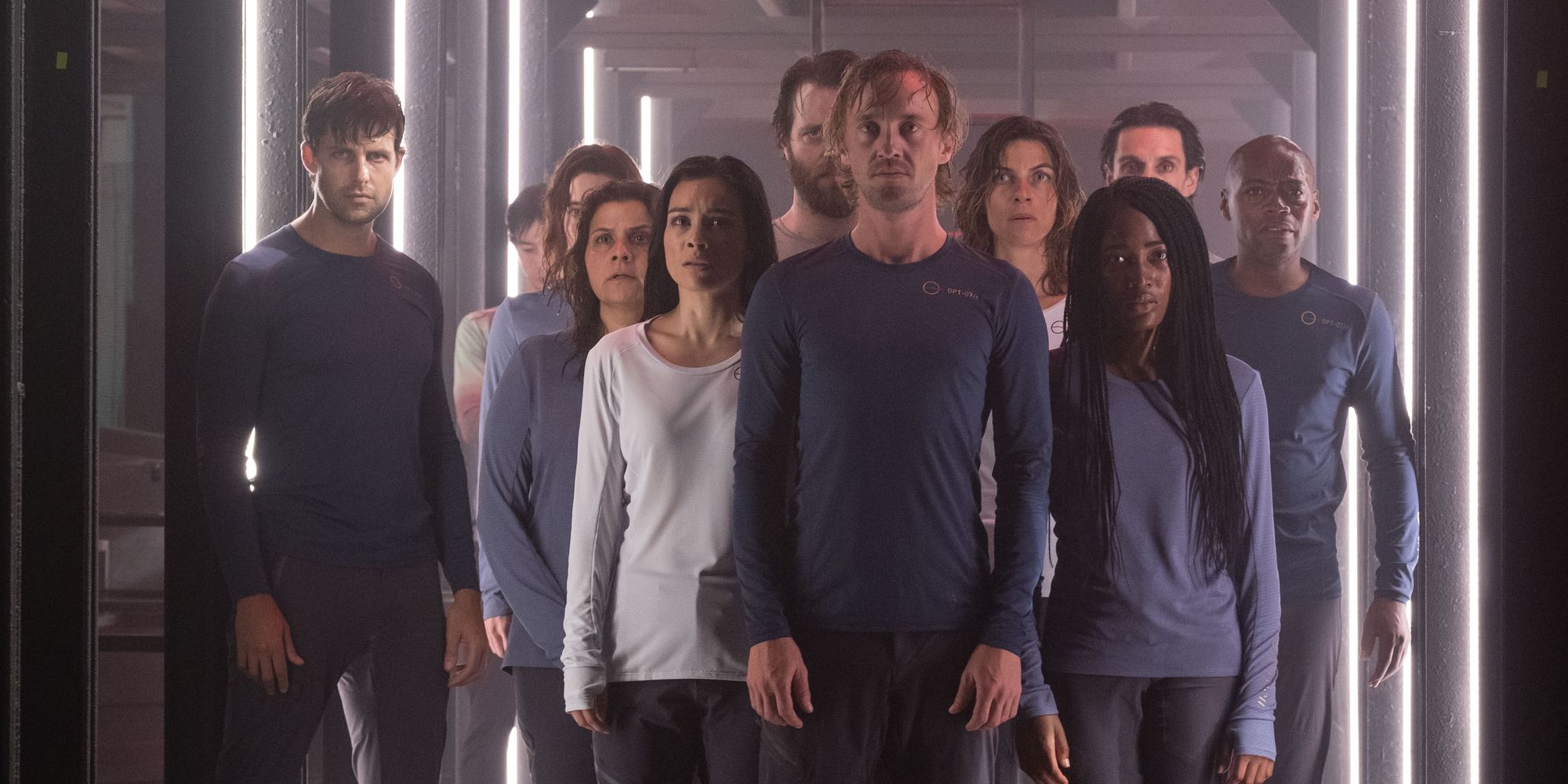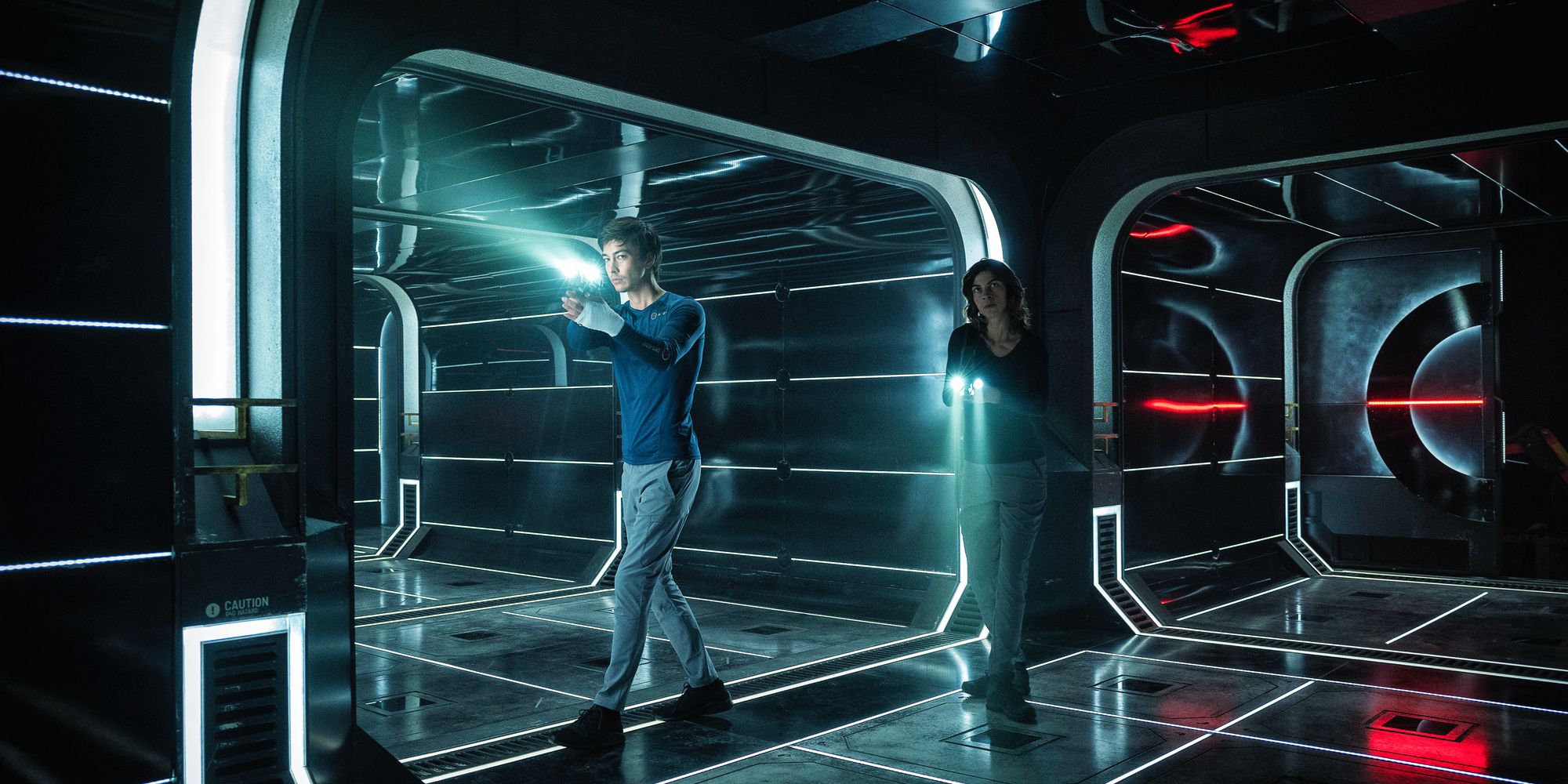
With the first two episodes hailing from director Paul W.S. Anderson, YouTube Premium’s sci-fi drama Origin is largely a pastiche of a handful of popular and influential genre films and television shows from the past four decades or so. The series unabashedly lifts from Blade Runner, Alien, The Thing, Passengers, and even Anderson’s own 1997 sci-fi-horror romp, Event Horizon, sending each and every piece off via a narrative vehicle achingly similar to that of Lost. And yet, despite all this the series manages to be easily consumable, as though the familiarity of its most prominent parts allows the it to skip the part where it teaches the audience how to watch. Instead, Origin just kind of goes, which makes streaming show’s somewhat jumbled imitations an advantage rather than a drawback.
It also doesn’t hurt that Origin has a diverse, nice-looking ensemble cast, one that boasts Harry Potter alums Natalia Tena and Tom Felton as two of its stars. The biggest surprise in the first two episodes, however, is the degree to which the series aims to give equal time to each of its characters, which it does by interweaving an individual flashback narrative (hence the Lost comparison) into the primary story of a group of space travelers left to fend for themselves on a seemingly abandoned space ship (a really big and spooky spaceship) that’s intended to deliver them to new lives on a planet being colonized by a corporation called Siren.
More: Patriot Season 2 Review: An Eccentric Spy Tale Brilliantly Mixes Melancholy & Humor
The series begins like so many deep-space narratives in recent years. This time, a young man, Shun (Sen Mitsuji), awakens before he was supposed to and finds himself aboard a seemingly empty ship. Soon, however, he’s joined by Tena’s Lana, and the rest of the primary cast is introduced shortly thereafter. The ship they’re on, though, is packed with more questions than answers, as the mystery of why this group of travelers was left behind becomes part of the larger question of why the ship was abandoned in the first place. Those questions begin to have greater weight as it becomes clear there was a run-in with an object that is potentially alien in origin, and might have some not-so-great designs on the human lifeforms left on the vessel.

The main narrative plays into Anderson’s wheelhouse, as it is driven primarily by a variety of jump scares, growing paranoia, and a need to move quickly from one end of what appears to be a truly massive and impressive set to the next. The first two episodes are largely concerned with world building and putting out small but meaningful fires in order to introduce each character and establish a consistent tone. That tone is fairly dark and serious, which shouldn't come as much of a surprise. Each new encounter is made to feel more ominous than the next, as the travelers learn to trust (or distrust) one another, as each persons' surface-level quirks are forced to act as a stand-in for actual personalities until it’s their turn to swing for the flashback fences.
Episodes 1 and 2 are devoted to Mitsuji’s Shun and Tena’s Lana, as they quickly emerge as the likely protagonists among the expansive cast. Shun’s backstory establishes him as a member of the Yakuza, a killer who betrayed his own family — his brother, Takeshi (Cole Horibe) — before making the five-lightyear journey to leave his troubled past behind. The first episode uses the flashbacks to further demonstrate the impressive (but familiar) visuals the series has to offer. The design aesthetic will be immediately recognizable to anyone who watched the aforementioned Blade Runner — or any future-set noir-ish story in the last 20 years or so. To Origin’s credit, its hyper-advanced cityscapes are as impressive as those of Netflix’s expensive Altered Carbon, though this series wins out by delivering physical sets that, while perhaps a little too over-engineered at times, don’t completely shatter the suspension of disbelief.
Shun and Lana’s backstories help color the decisions they make in the primary narrative, especially when it comes time for them to make split-second decisions in life-or-death situations. That becomes increasingly perilous as Origin introduces a biological threat that takes the narrative, again, to some familiar places, while also establishing a solid body-horror twist just to complicate things further.

As is usually the case in scenarios such as this, characters often fail to relay important information to one another — either about themselves or about the situation at hand — which inevitably results in lives being put in danger and eventually lost. Case in point, the hotheaded, self-indulgent Baum (Philipp Christopher) calls an elevator when Lana, Shun, and a third member of the castaways are claiming a retractible ladder in what is the ship's main elevator shaft. By virtue of the vessel's weirdly hostile design, the show claims its first victim on account of human error. It’s an element creator and writer Mika Watkins returns to again and again, especially as the characters’ backstories and their reasons for seeking a blank slate (or tabula rasa) begin to unfold.
Whether or not that will add up to a fulfilling, 10-episode binge remains to be seen. But, while Origin might not be the next Lost (or any number of other films it resembles), it should attract an audience in search of a good enough sci-fi fix and who want to see what YouTube Premium can do with a genre series when it has a blockbuster-sized budget to match.
Next: Mars Season 2 Review: Nat Geo’s Hybrid Series Explores The Red Planet’s Future
Origin begins streaming on YouTube Premium on Wednesday, November 14.
from ScreenRant - Feed https://ift.tt/2OIbdm2

0 Comments